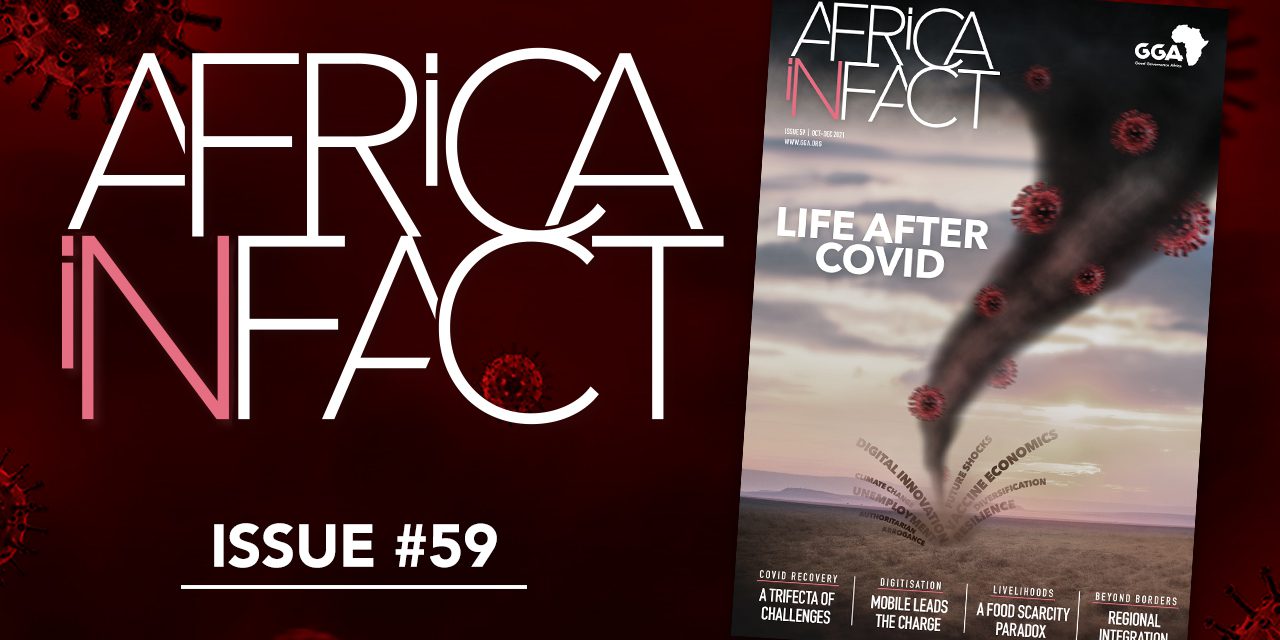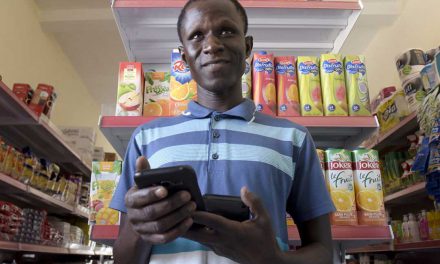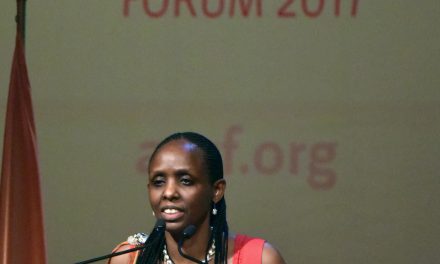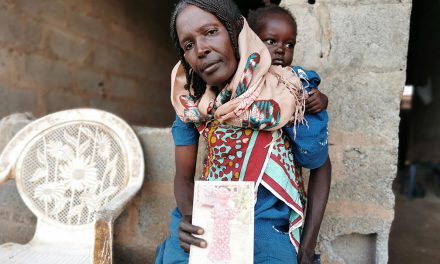This editorial is written from Johannesburg as the third wave of coronavirus infections subsides – even while health authorities and government are warning citizens to brace for a fourth, predicted to hit the country in November/ December this year. This scenario is not unique to the southern tip of Africa; it is a global reality. The fact is that in the latter part of 2021 a totally post-COVID world seems very far away, even in the Global North with its vastly greater resources to combat the virus and weather the social and economic consequences. Indeed, at this point, health experts suggest that COVID-19 is something humanity will just have to get used to living with.
COVID-19 has hit Africa hard. While it is true that, according to official statistics at least, the virus has not caused the loss of human life on the scale seen in the United States, Europe and elsewhere in the world, the economic consequences have been devastating. As our contributors point out from various angles, an already vulnerable Africa has, once again, borne the brunt of socioeconomic damage due to an event that originated elsewhere, impacting every sector of society, with serious and long-term damage to livelihoods and development goals across the continent.
According to the World Bank, gross domestic product (GDP) tumbled by 3.7% in 2020, employment fell 8.5%, and debt reached58% of GDP. Governments found themselves having to divert already inadequate finances from development budgets to fight the pandemic, and countries like Nigeria and South Africa felt the squeeze as demand for commodities fell.
The economic impacts of COVID-19 on Africa have been devastating, making it imperative to build resilience now However, as this edition of Africa in Fact illustrates, the COVID-19 crisis also offers Africa a unique opportunity to reset itself, encouraging the African Union and individual member states to rethink how they aim to reach those goals and make bold new policy and governance decisions that could transform, for the better, the lives of millions of their citizens.
It won’t be easy. As Ronak Gopaldas points out in his opening article, Africa’s fortunes in a post-COVID world will depend on how it navigates the critical questions of vaccine economics, vaccine diplomacy and regional integration. As he reminds us, Africa experienced its first recession in 25 years in the context of falling commodity prices, coronavirus shocks and a rapid rise in the cost of funding. But he is quick to add that there are signs that with political will, these can be overcome. A new wave of entrepreneurship, including Africa’s new generation of tech startups, have gathered fresh momentum as they’ve been forced to find new ways to deal with the crisis. There has also been growth in the health, energy, logistics and retail sectors, among others, he notes.
Marisa Casale’s article looks at the future of Africa’s public health systems and the lessons learnt in tackling the pandemic. COVID-19, she says, has shown us how a united Africa is important in opening doors – to better supplies, procurement, greater pressure for good country-level health governance, more research and development to reduce dependence on imports, as well as partnerships to build stronger research capacity. Africa as a collective could also have a stronger voice and influence on global diplomacy, she writes. Casale also makes another important point, namely that the pandemic has highlighted the need to strengthen the “system software” vital to successful emergency responses and public health initiatives – good leadership and increased trust between individuals, providers, and leaders.
Ini Ekott, meanwhile, makes the case for the diversification of Africa’s largely commodity-based economies. It is crucial, he says, that a post-pandemic economic recovery is driven by policies that take advantage of the opportunities created by the pandemic, and a good place to start is diversification.
Compiling this edition, it was sobering to be reminded to what extent Africa relies on the informal economy to provide livelihoods for its citizens. The statistics are startling; according to the International Labor Organization, 85.8% of employment is within the informal economy, if one includes agriculture. But, as Terence Corrigan and Nicholas Lorimer illustrate, instead of finding innovative ways to fairly assimilate these people into the formal economy, too many governments view the sector as a blot on the landscape, literally in the case of Zimbabwe and
Nigeria, two examples provided by the writers of countries where governments have used pandemic lockdowns to act against informal traders. The COVID-19 crisis, they write, has presented a once-in-a-lifetime opportunity for governments to impose controls on their societies, with a respectable rationale for doing so.
Anna Trapido and Richard Goode’s article tackles other aspects of authoritarian overreach as governments have restricted rights to fight the pandemic. Using Morocco, Mauritius, Rwanda and South Africa as case studies, the authors write that authoritarian arrogance is written into rules that do not take into account the conditions under which citizens survive. Issuing regulations does not necessarily make compliance and enforcement possible. It is estimated that it may take until 2023 for Africa to be adequately vaccinated, and as Trapido and Goode write, “the longer curbs on civil liberties go on the greater the risk they will become entrenched as the new normal”.
Elsewhere in the edition, Issa Sikiti da Silva’s article reiterates the importance of regional integration in encouraging the intra-continental movement of goods and people and building resilience to future shocks. His article is a timely reminder of the need for countries to fully commit to the principles embodied in initiatives such as the Africa Intercontinental Free Trade Area agreement.
At present, the obstacles to doing business in Africa are not limited to the informal sector. Dianna Games writes that small and medium businesses are the backbone of African economies, and their success has never been more important than now as countries seek to regroup post COVID-19. Their most intractable problem is lack of access to finance, and while many governments have created special vehicles to provide SME finance, these can be prohibitively difficult to access and snarled in bureaucratic red tape.
Other writers in this edition make the point out that, in addition to the economy and health systems, the COVID-19 crisis also presents an opportunity for stimulus initiatives in other areas that are vital to improving African lives and livelihoods. Joe Walsh’s article examines the parameters of a proposed African Green Stimulus Programme (AGSP), which aims to upscale and enhance the blue and green economy as well as climate change initiatives. Will this programme really be the viable, real Green New Deal that Africa urgently requires? Only time will tell.
Raphel Obonyo’s article stresses that post-COVID recovery initiatives must also include tackling Africa’s youth unemployment crisis. The pandemic has upended many government youth job creation projects, including in Nigeria and Zambia. Going forward, Obonyo writes, African governments will have to foster an enabling environment for youth development, working with them as partners, not mere beneficiaries.
Speaking of Africa’s youth, it is they who are the core demographic driving the continent’s digitalisation, a process which has been boosted by the unusual demands of the pandemic, writes Michael Schmidt. His article examines how mobile penetration – 80% of Africans have a mobile phone subscription – is driving the continent’s digital transformation, bypassing capital-intensive legacy infrastructure. Almost 60% of these users are under 25, and 50% under 19.
Always mindful of the importance of listening to voices on the ground, this edition of Africa in Fact includes articles from regular contributors Justus Wanzala and Mark Kapchanga (East Africa) and Dorothy Asi (Nigeria), who share the experiences of people whose lives and livelihoods have been profoundly affected in different ways by COVID-19. The voices given space in these three articles are a powerful reminder, if one is needed, of the resilience and fortitude of Africa’s people in dealing with challenges too often amplified by poverty and underdevelopment, conflict and misgovernance.
Ultimately, as Derick Mazarura notes in his article that looks at wood and water insecurity in Africa, the COVID-19 pandemic has reminded us of the imperative of effective governments that deliver results.
Susan Russell is the editor of Good Governance Africa’s quarterly journal, Africa in Fact. She has worked in the media industry for more than 30 years as a journalist, editor, publisher, and as a general manager. Career highlights include several years working for Business Day and more than a decade as a reporter, editor and General Manager at the Sunday Times in Johannesburg.












